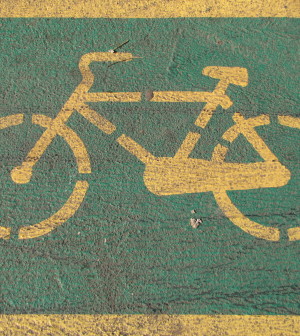- Could Your Grocery Store Meat Be Causing Recurring UTIs?
- Are You Making This Expensive Thermostat Error This Winter?
- Recognizing the Signs of Hypothyroidism
- 10 Strategies to Overcome Insomnia
- Could Artificial Sweeteners Be Aging the Brain Faster?
- Techniques for Soothing Your Nervous System
- Does the Water in Your House Smell Funny? Here’s Why
- Can a Daily Dose of Apple Cider Vinegar Actually Aid Weight Loss?
- 6 Health Beverages That Can Actually Spike Your Blood Sugar
- Treatment Options for Social Anxiety Disorder
Some Steps to Help Protect Yourself From Cancer

More than 1 million Americans are diagnosed with cancer each year, but there are a number of things you can do to reduce the chances you’ll be among them.
First, it’s important to get regular check-ups and cancer screening tests because they increase the odds of detecting cancer at its earliest stages when treatment may be more effective, said Dr. John Daly, attending surgeon at Fox Chase Cancer Center in Philadelphia.
There are screening tests for many types of cancer, including breast, cervical, colorectal and prostate cancers.
To reduce your cancer risk, Daly recommends maintaining a healthy weight, being active and eating healthy foods.
“Individuals who lead physically active lifestyles have a lower risk of certain cancers than those who are sedentary. A balance of diet and exercise can help you stay at a healthy weight today and into your future,” Daly said.
Adults should get at least 150 minutes of moderate exercise or 75 minutes of vigorous exercise a week, or a combination of the two, the American Cancer Society (ACS) says.
The ACS also advises eating at least two-and-a-half cups of fruits and vegetables a day, having whole grains over refined grains, and limiting consumption of alcohol, and processed and red meats.
Another important cancer prevention tip: Don’t smoke or use tobacco in any form. At least 30 percent of all cancer deaths, 87 percent of lung cancer deaths in men, and 70 percent of lung cancer deaths in women are caused by smoking or tobacco use, according to the ACS.
“Quitting smoking is the best thing anyone can do to help prevent cancer, no matter what their age or how long they’ve smoked,” Daly said. “Secondhand smoke is equally harmful to one’s health.”
Limiting sun exposure is another way to reduce your risk for skin cancer.
“Staying in the shade is the most sensible, obvious precaution. When you’re out in the sun, wear sunscreen, protective clothing and sunglasses that block 99 percent to 100 percent of UVA and UVB rays,” Daly said.
More information
The U.S. National Cancer Institute has more about cancer prevention.
Source: HealthDay
Copyright © 2026 HealthDay. All rights reserved.










